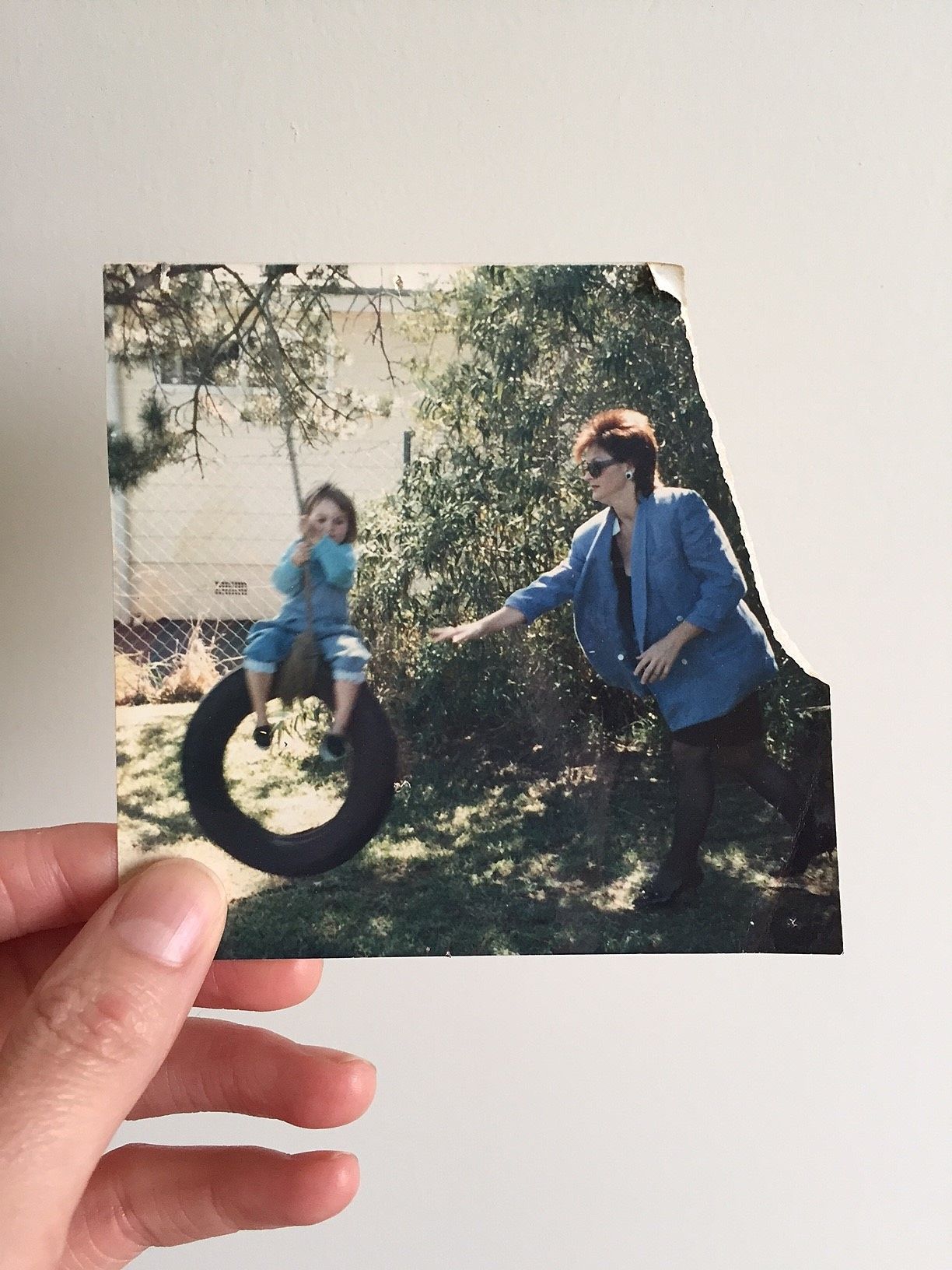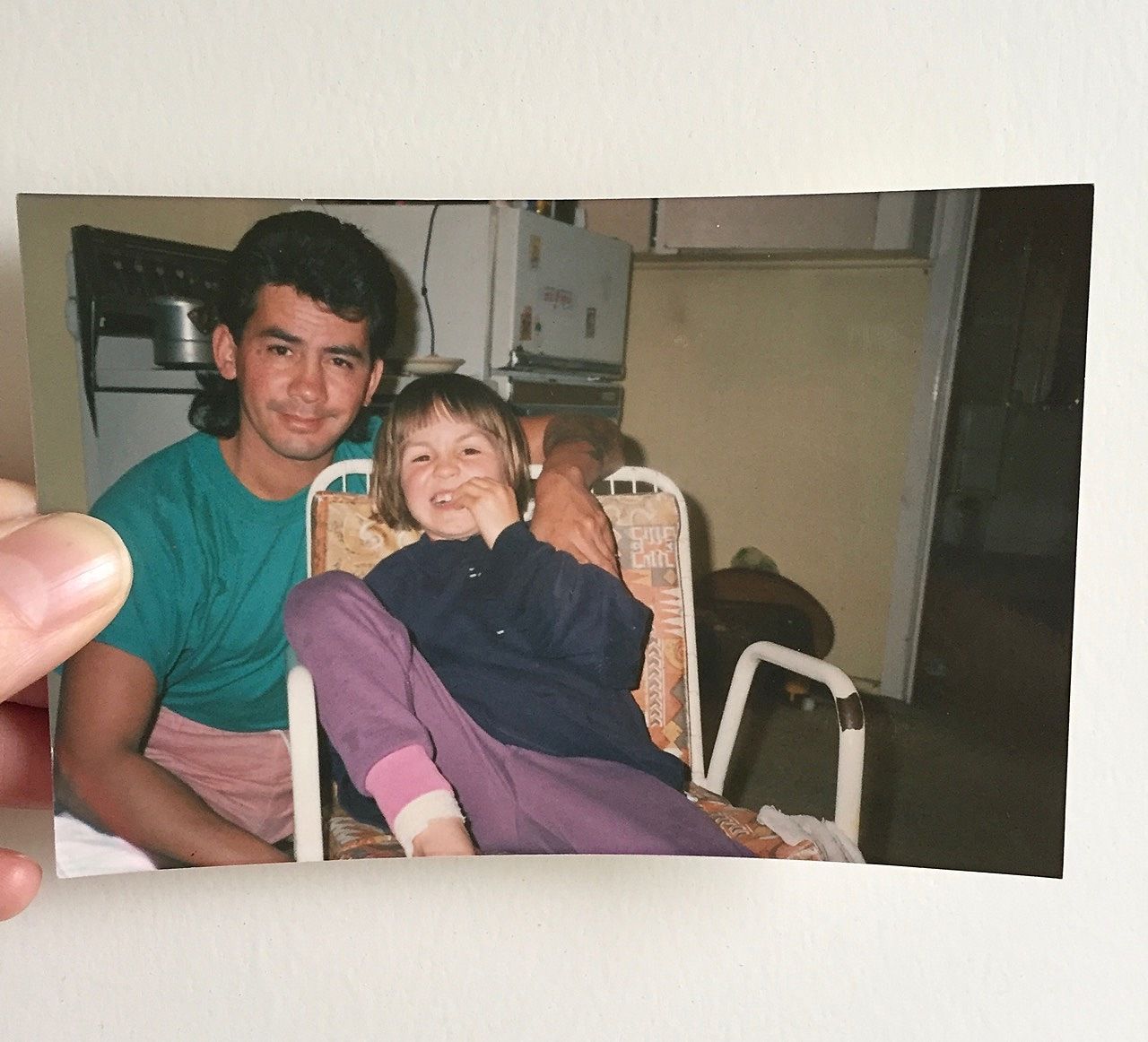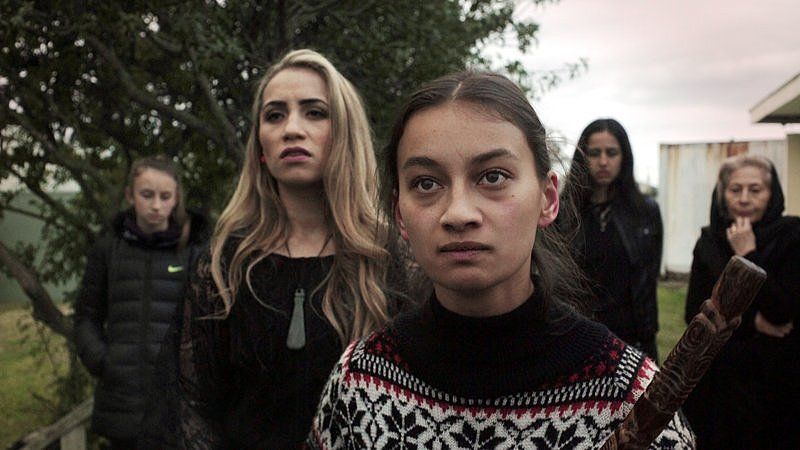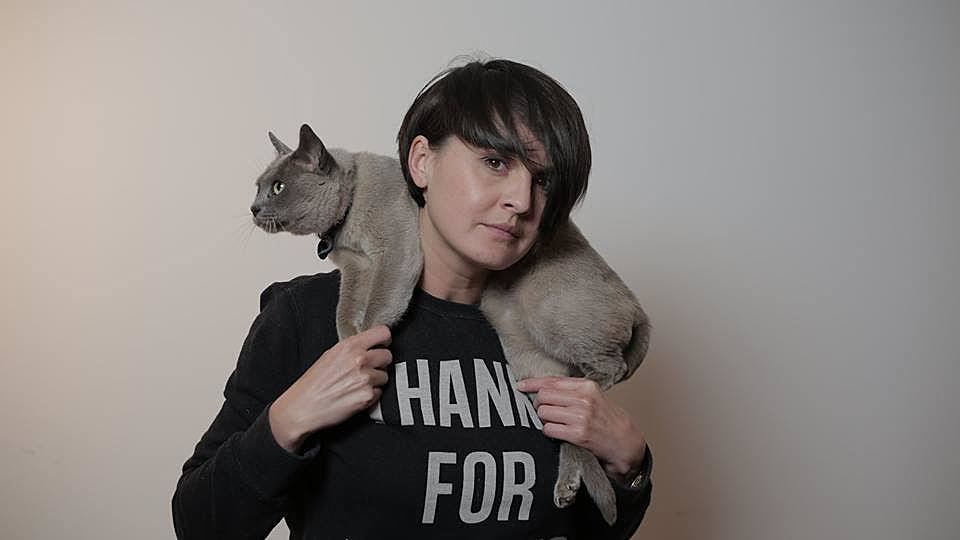Looking the Other Way
Josephine Stewart-Te Whiu on the family violence she observed as a child, and the memories that informed her work in WARU. CW: family violence.
Josephine Stewart-Te Whiu is one of the screenwriters featured in Waru, a collection of eight short films by Māori women directors and writers (brought together by producers Kerry Warkia and Kiel McNaughton) which had its premiere last night at the New Zealand International Film Festival. The film uses its multi-faceted perspectives to tackle a subject of equal complexity: at the centre of the combined narratives is Waru, a boy killed at the hands of his caregiver.
In this essay, Josephine recalls her childhood memories of observing family violence both strange and familiar; echoes which informed her short film in Waru.
Content warning: descriptions of family violence.
My Dad is Māori and my Mum is Pākehā. My parents separated when I was two. It was 1986. My mum packed me and our clothes into her V-Dub (white with red doors) and we left my Dad standing in the driveway of our Grey Lynn state house.
We moved in with my grandmother who lived in a huge rambling villa in Mt Albert. The wallpaper was held in place with push pins and the kitchen still had the old coal oven. We lived in the spare room and Mum and I slept in the same bed until I was five. I’m not sure if I remember the violent, thunderous argument that led to Mum leaving Dad or if I imagined it. I remember hiding behind the fridge. I remember the yelling. I remember something being smashed; a mug, a white mug. I remember being picked up.
If truth be told my parents were as bad as each other. I’m sure the universe sighed with relief when Mum left Dad.
Growing up, I thought we were rich. There were always shoes on my feet and food on the table. I always had lunch at school. My lunch was never nice enough for the other kids to steal, but I was never sent to school empty-handed. There was a girl in my class whose name was Joanna. Her mother sent her to school with ham sandwiches on white bread cut out in the letter “J”. Her sandwiches were always wrapped in white baking paper. I remember feeling scandalised; “J” was my letter. I always wanted to steal her lunch. I never did.
There was a boy in my class who never had any lunch and he would steal tidbits from the other lunchboxes in the cloakroom. He would come to school with a black eye or chunks of hair missing. His face was always grubby and he never had any shoes. The teacher had forbidden us to ask him what happened and we were encouraged to look the other way. Sometimes he’d have these rage-fuelled meltdowns at the teacher and throw his chair at the window. One time the glass smashed. We all had to stand outside while he got dragged to the principal's office.
On his birthday the teachers all chipped in and bought him a cake. I remember how much he beamed when they bought that cake out.
He never seemed to get into trouble – he’d show up at his desk the next day, angry and defiant. Sometimes he’d fall asleep in the reading corner on a pile of cushions and we were instructed not to wake him under any circumstances. We had to let him sleep. On his birthday the teachers all chipped in and bought him a cake. I remember how much he beamed when they bought that cake out. We were all allowed a piece of cake and I remember watching a teacher sneak some oranges into his bag after school that day.
By this time Mum and I had moved into an old brick unit next to the motorway in Waterview (which has long since been demolished for the tunnel). We lived there while mum and her new partner were saving for a place in Avondale. After we moved, our black cat Sam ran away after two weeks. My poor Mum paraded through the neighbourhood wailing his name from the day into the night. Long after we moved out of Waterview, and no matter the neighbourhood, she would slow the car down whenever she saw a black cat, wind down the window and shriek “Sam!” at it. She did this for years.
There was a little girl living in one of the off-white A-frame houses behind us in Waterview. Her house bordered the motorway on-ramp and pressed hard against Great North Road. The cladding was dirty from all the car fumes. She was my neighborhood friend – we went to different primary schools but we’d play together after school and on the weekends. Once we got into trouble for stealing ripe passionfruit off the old lady’s vine from the unit next to Mums. We played in the park opposite our houses, avoiding the teens lurking in the public toilets – we were kids being kids.
As we left, I saw her father sitting at the head of the table – his chair a throne.
One day we were playing at her house. Her family didn’t have much. (I remember thinking maybe we should be playing at my house instead, so she wouldn’t be embarrassed, but we didn’t have much either). We heard shouting and she froze. She took my hand, pulled me down the stairs and as we left I saw her father sitting at the head of the table – his chair a throne. He was looking at her two brothers who were both at the table, their heads bowed. One of them was crying. I remember being surprised that one of them was crying, because they both seemed so old to me – but in reality they were probably about nine and eleven. On the table in front of them lay three objects: a belt; a rope; a stick.
Her mother spotted us on the steps and quickly ushered us out the front door. My friend and I sat on the swings in the park. It stunk of mangroves and mud.
“Why were they crying?”
“Because they were bad”
“But what did they do?”
She shrugged her shoulders, avoiding my eyes and my curious questions.
“What was that stuff on the table?”
“We have to chose one when we’ve been bad.”
I remember she said this so simply. She wasn’t upset. It was a just a fact.
I think about all the things that go unsaid around family when you’re a kid; things that you know are happening. As kids during sleepovers we’d whisper to each other in hushed tones about all the fucked-up things we’d seen; the adult situations we’d find ourselves in. Our parents drinking and drug use. We talked about whose dad was in a gang and whose dad wasn’t. Whose uncle or older brother or parents’ friend had touched them and whose hadn’t. Whose mum hit them and whose didn’t. As a kid I knew these acts against children were wrong, but I felt utterly powerless to stop it. You learn to keep your mouth shut. You learn that exposing the secret could make it worse.
You learn to keep your mouth shut. You learn that exposing the secret could make it worse.
So I tell myself that, as an adult, if I ever see violence against a child I’ll step in and stop it. But this year while waiting, bored, at an airport, I could see a mother repeatedly whacking her son over the head and around the face. He must’ve been about ten. She was furious, pink in the face, her eyes wild and somewhere else. He just looked at the ground. He didn’t even cry or try and protect himself. And instead of stepping in, instead of stopping her, instead of being the hero, I just tried not to watch. I worried that I would be seen as meddling in someone else’s business, so like everyone else, I looked the other way and pretended it wasn’t happening.
When Mum and I finally moved into our Avondale bungalow there were these kids up the road whose parents would drunkenly fight most nights. It wasn’t unusual; someone’s parents were always fighting on our street. You could hear the muffled shouting and an echoed slamming of doors, and I’m sure the neighbours heard the same sounds coming from our house when it was our turn. But it always sounded like the family up the road had it the worst. The yelling would turn into throaty screams, spilling out the front door and howling up and down the street.
My mum would sit beside the phone listening, waiting for it to get bad enough to call the police.
Waru
Auckland | Wellington | Christchurch | Dunedin
If you or someone you know is suffering from family violence, or if you would like to support the organisations who work with families, here are some organisations you can contact or donate to:
Women's Refuge: 0800 REFUGE or 0800 733 843
'It's Not Ok' Family Violence Information Line: 0800 456 450
Shine: 0508 744 633
Te Kupenga Whakaoti Mahi Patunga - National Network Stopping Violence Services
The Aunties



